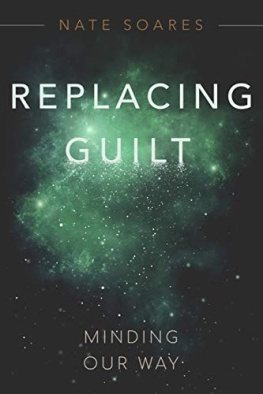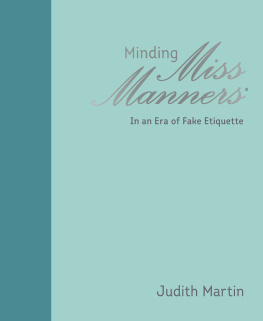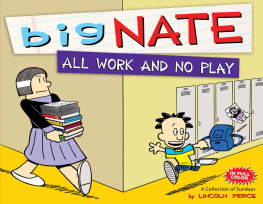Nate Soares - Replacing Guilt: Minding Our Way
Here you can read online Nate Soares - Replacing Guilt: Minding Our Way full text of the book (entire story) in english for free. Download pdf and epub, get meaning, cover and reviews about this ebook. year: 2020, publisher: Independently Published, genre: Romance novel. Description of the work, (preface) as well as reviews are available. Best literature library LitArk.com created for fans of good reading and offers a wide selection of genres:
Romance novel
Science fiction
Adventure
Detective
Science
History
Home and family
Prose
Art
Politics
Computer
Non-fiction
Religion
Business
Children
Humor
Choose a favorite category and find really read worthwhile books. Enjoy immersion in the world of imagination, feel the emotions of the characters or learn something new for yourself, make an fascinating discovery.
- Book:Replacing Guilt: Minding Our Way
- Author:
- Publisher:Independently Published
- Genre:
- Year:2020
- Rating:4 / 5
- Favourites:Add to favourites
- Your mark:
- 80
- 1
- 2
- 3
- 4
- 5
Replacing Guilt: Minding Our Way: summary, description and annotation
We offer to read an annotation, description, summary or preface (depends on what the author of the book "Replacing Guilt: Minding Our Way" wrote himself). If you haven't found the necessary information about the book — write in the comments, we will try to find it.
Replacing Guilt: Minding Our Way — read online for free the complete book (whole text) full work
Below is the text of the book, divided by pages. System saving the place of the last page read, allows you to conveniently read the book "Replacing Guilt: Minding Our Way" online for free, without having to search again every time where you left off. Put a bookmark, and you can go to the page where you finished reading at any time.
Font size:
Interval:
Bookmark:
I hang out around a lot of effective altruists. Many of them are motivated primarily by something like guilt (for having great resource and opportunity while others suffer) or shame (for not helping enough). Hell, many of my non-EA friends are primarily motivated by guilt or shame.
I'm not going to criticize guilt/shame motivation: I have this policy where, when somebody puts large amounts of effort or money towards making the world a better place, I try really hard not to condemn their motives. Guilt and shame may be fine tools for jarring people out of complacence. However, I worry that guilt and shame are unhealthy long-term motivators. In many of my friends, guilt and shame tend to induce akrasia, reduce productivity, and drain motivation. So over the next few weeks, I'll be writing a series of posts about removing guilt/shame motivation and replacing it with something stronger.
Say you're a college student, and you have a paper due. The quality of the paper will depend upon the amount of effort you put in. We'll say that you know the project pretty well: you can get an A with only moderate effort, and with significant effort you could produce something much better than the usual A-grade paper.
The education environment implicitly attempts to convince students that their preferences point ever rightward along this line. Parents and teachers say things like "you should put in your best effort," and they heap shame upon people who don't strive to push ever rightward along the quality line.
People generally react to this coercion in one of two ways. The first group (the "slackers") rejects the implication that quality=preferences. These are the people who don't care about the class, who complain constantly about the useless pointless work they have to do, who half-ass the assignment and turn in something that either barely passes or fails entirely. Slackers tend to resent the authority forcing them to write the paper.
The second group (the "tryers") are the ones who accept the premise that quality=preferences, and strive ever rightwards on the quality line. Tryers include people of all ability levels: some struggle as hard as they can just to get a C, others flaunt their ability to produce masterpieces. Some try to curry favor with the teacher, others are perfectionists who simply can't allow themselves to turn in anything less than their best effort. Some of them are scrupulous people, who feel guilty even after getting an A, because they know they could have done better, and think they should have. Some are humble, some are show-offs, but all of them are pushing rightward.
Society has spent a lot of time conditioning us to think of the tryers as better than the slackers. Being a tryer is a virtue. Slackers are missing the point of education; why are they even there? The tryers are going to go places, the slackers will never amount to anything.
But in fact, both groups are doing it wrong.
If you want to be highly effective, remember what you're fighting for.
And, spoiler alert, you aren't fighting for "write a high-quality paper." That would be a pretty silly thing to fight for.
What is your goal in taking this class? Perhaps you're doing it thanks to a combination of social pressure (your parents said to), social inertia (everybody else goes to college), and a vague belief that this is the path towards a good job and a comfortable life. Or perhaps you're there because you want good grades so you can acquire lots of money and power which you will use to fight dragons. Or perhaps you're there out of a genuine thirst for knowledge. But no matter why you're there, your reason for being there will pick out a single target point on the quality line. Your goal, then, is to hit that quality target no higher, no lower.
Your preferences are not "move rightward on the quality line." Your preferences are to hit the quality target with minimum effort.
If you're trying to pass the class, then pass it with minimum effort. Anything else is wasted motion.
If you're trying to ace the class, then ace it with minimum effort. Anything else is wasted motion.
If you're trying to learn the material to the fullest, then mine the assignment for all its knowledge, and don't fret about your grade. Anything else is wasted motion.
If you're trying to do achieve some combination of good grades (for signalling purposes), respect (for social reasons), and knowledge (for various effects), then pinpoint the minimum quality target that gets a good grade, impresses the teacher, and allows you to learn the material, and hit that as efficiently as you can. Anything more is wasted motion.
Your quality target may be significantly left of F if, say, you've already passed the class, and this assignment doesn't matter. Your quality target may be significantly to the right of A if, say, you're there to learn the material, and grade inflation means that it's much easier to produce an A-grade paper than it is to complete the assignment in the maximally informative way. But no matter what, your goals will induce a quality target.
Both the slackers and the tryers are pursuing lost purposes. The slackers scoff at the tryers, who treat an artificial quality line like it's their actual preferences and waste effort over-achieving. The tryers scoff at the slackers, who are taking classes but refusing to learn. And both sides are right! Because both sides are wasting motion.
The slackers fail to deploy their full strength because they realize that the quality line is not their preference curve. The tryers deploy their full strength at the wrong target, in attempts to go as far right as possible, wasting energy on a fight that is not theirs. So take the third path: remember what you're fighting for. Always deploy your full strength, in order to hit your quality target as fast as possible.
Half-ass everything, with everything you've got.
(My teachers used to say that I could do great things if only I applied myself. I used to tell them that if they wanted me to apply more effort, they would need to invent higher letter grades.)
A common objection arises here:
Some things are too important to "half-ass." Some things are simply worth fighting for with your full strength. It's one thing to half-ass a homework assignment, and another thing entirely to half-ass saving a life. Sometimes you want to push as far right as you can on the quality curve.
This is both true and false, because it is mixed up. Given any project, always aim no higher than the quality target, and always strive for minimum expenditure of effort. It doesn't matter whether you're writing a term paper, pulling a person out of a burning house, or creating a galaxy-spanning human civilization the goal is always to achieve some quality target with minimum effort. Negentropy is scarce.
That said, the quality target can be really really high. In fact, the quality target is sometimes unatainably high. Often, we simply aren't capable of hitting our quality targets, and in those cases, we do want to push as far right along the preference curve as we can.
This can occur naturally whenever you work on something difficult relative to your skill level, or in competitive situations, or if you're signalling your ability to work hard. But don't get confused. Even if you write for the love of writing, you eventually have to stop editing and call it finished. Even if you're getting somebody out of a burning building, you eventually stop putting effort towards ensuring that they survive in favor of putting that effort towards saving other dying people instead. Even if you're building an intergalactic civilization, you need to trade off energy spent building the civilization against energy spent living in it.
Font size:
Interval:
Bookmark:
Similar books «Replacing Guilt: Minding Our Way»
Look at similar books to Replacing Guilt: Minding Our Way. We have selected literature similar in name and meaning in the hope of providing readers with more options to find new, interesting, not yet read works.
Discussion, reviews of the book Replacing Guilt: Minding Our Way and just readers' own opinions. Leave your comments, write what you think about the work, its meaning or the main characters. Specify what exactly you liked and what you didn't like, and why you think so.











